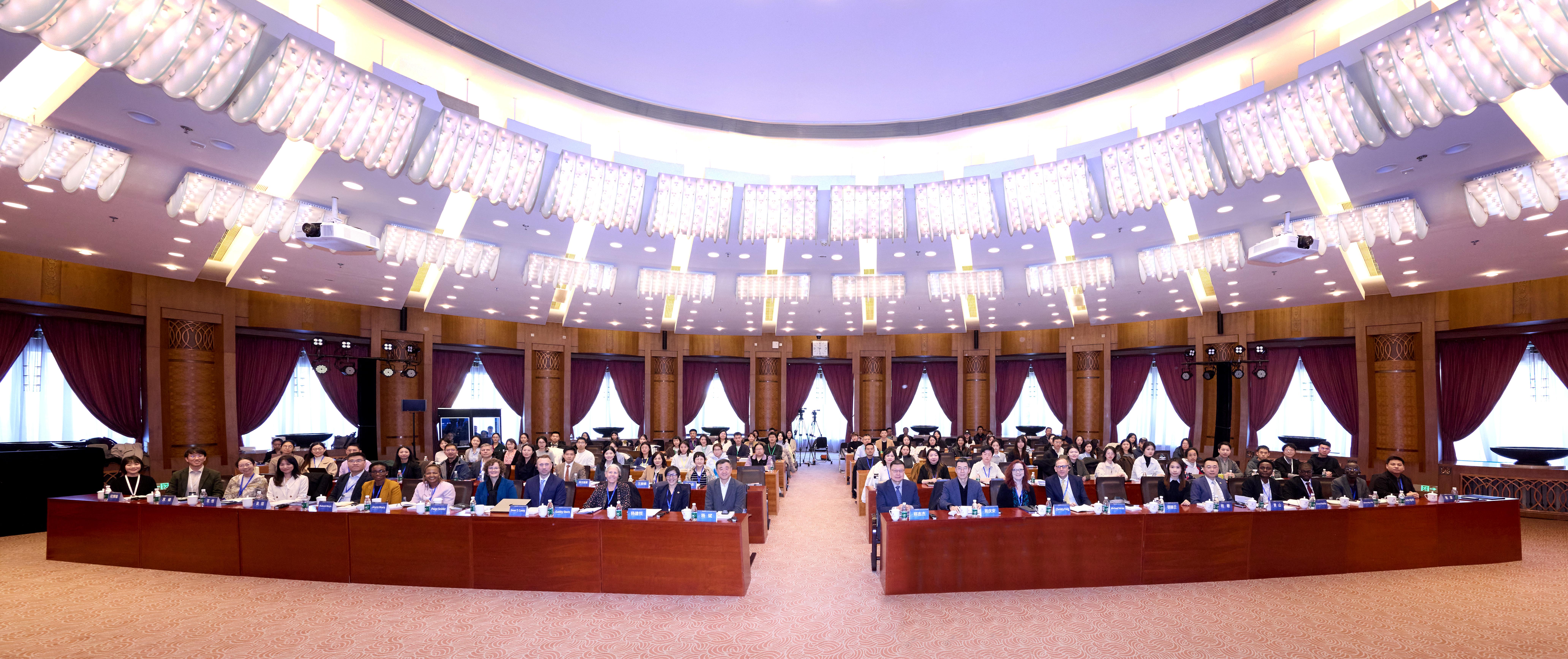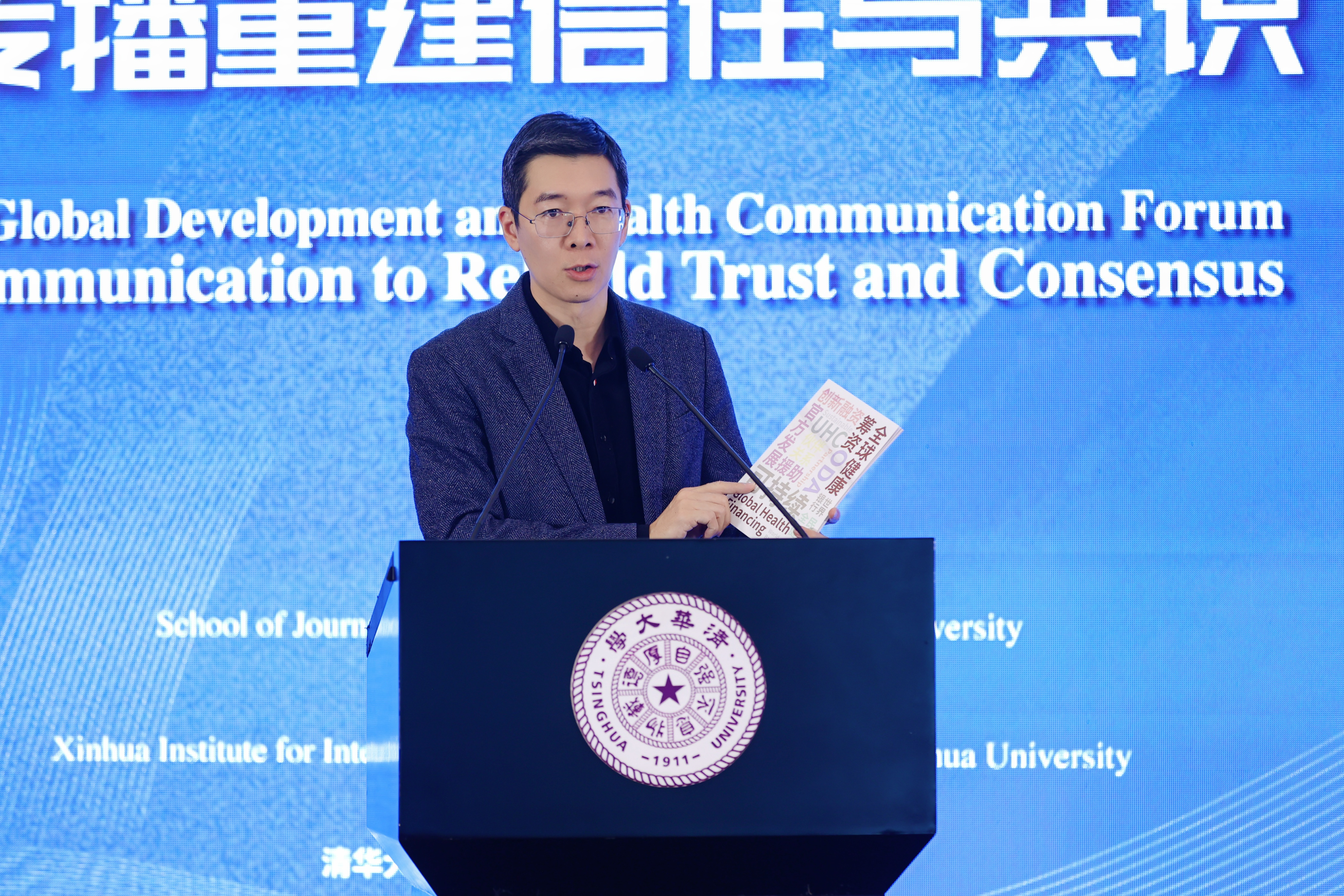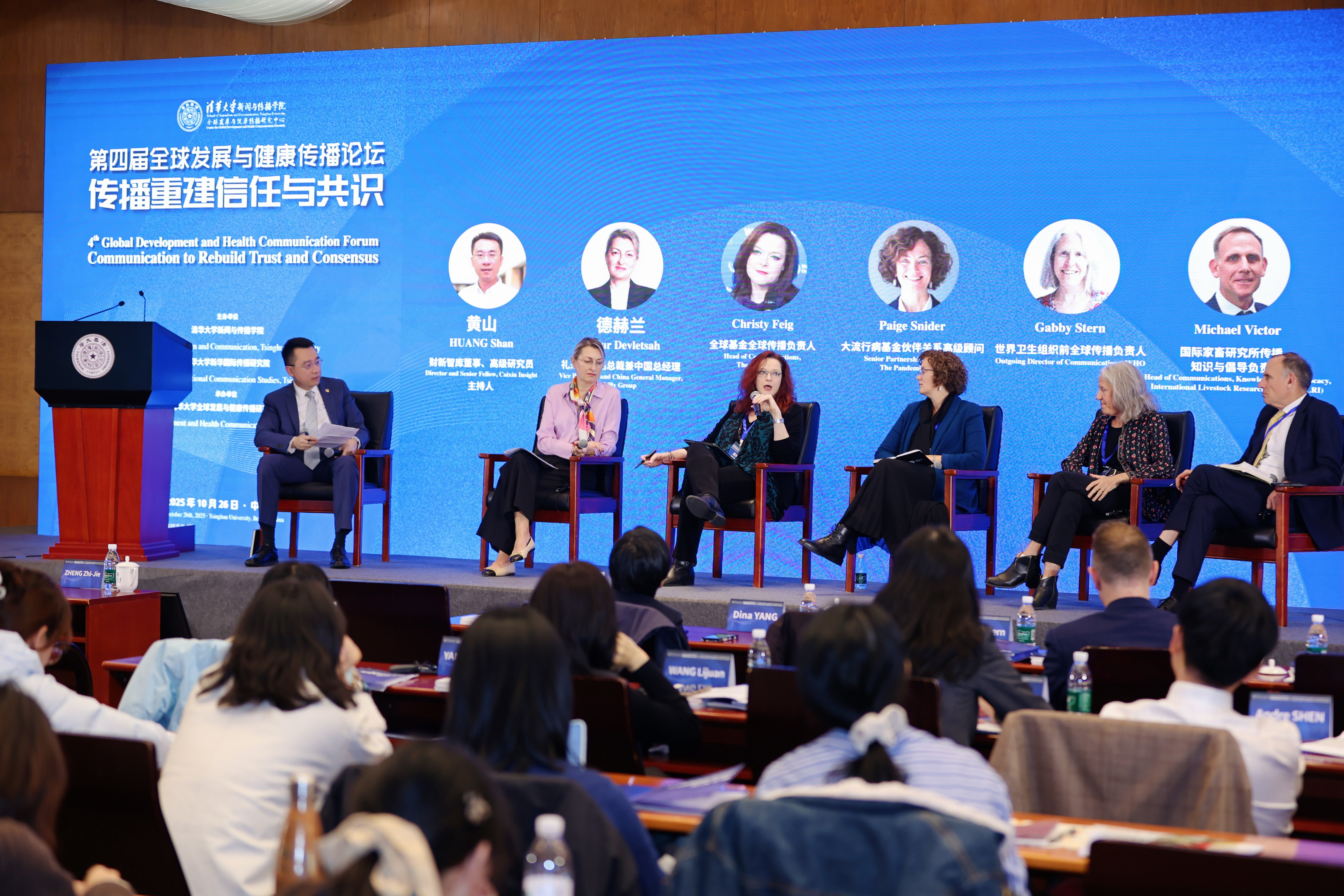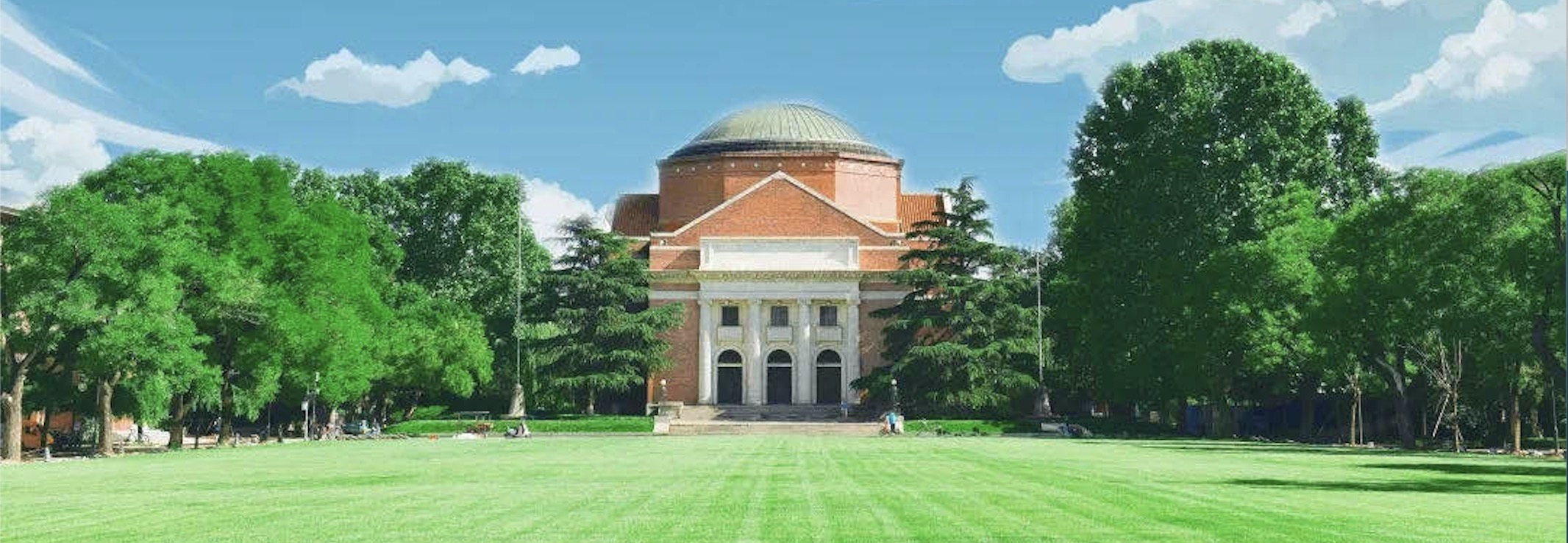On October 26, 2025, the Fourth Global Development and Health Communication Forum was successfully held at Tsinghua University, jointly organized by the School of Journalism and Communication and the Xinhua Institute for International Communication Studies, and hosted by the Global Development and Health Communication Center (GDHCC).
In a year marking the 80th anniversary of the United Nations and the final five-year sprint toward the 2030 Sustainable Development Goals (SDGs), the forum centered on the theme “Communication to Rebuild Trust and Consensus.” Nearly 200 representatives from international organizations, academia, media, and industry gathered to explore how communication can restore confidence and cooperation amid growing global uncertainty and fragmentation.

Professor Yang Bin, Vice Chairperson of Tsinghua University Council, delivered opening remarks on behalf of the university leadership. Zheng Zhijie, Director of Gates Foundation China Country Office, noted that while technology remains an engine for progress, “trust is the fuel, and communication is the spark that ignites collective action.” He reaffirmed the Foundation’s mission for the next two decades—ending preventable maternal and child deaths, controlling infectious diseases, and eradicating extreme poverty—emphasizing that communication is essential to rebuilding a global trust ecosystem.
The opening session was chaired by Associate Professor Chen Liang, Assistant to the Dean of the School of Journalism and Communication, while Associate Professor Kuang Kai, Assistant to the Dean of the Xinhua Institute for International Communication Studies at Tsinghua University, moderated the plenary session.
Keynote addresses were delivered by Siddharth Chatterjee, UN Resident Coordinator in China, and Dr. Gina Samaan, Regional Emergency Director of WHO’s Western Pacific Regional Office, both via video. Chatterjee emphasized that misinformation has become one of the greatest threats to global trust and cooperation, citing the UN Global Risk Report 2024. He called for communication built on empathy, respect, and shared humanity.
Dr. Samaan congratulated GDHCC for joining the WHO Global Outbreak Alert and Response Network (GOARN) and highlighted the “WHO BRIDGE” framework for strengthening community education and risk communication. Sean Casey, Program Area Manager of Emergency Operations at WHO’s Western Pacific Regional Office, further elaborated on the region’s strategies to combat misinformation and enhance risk communication, including new collaborations with China.
Professor Zhou Qing’an, Dean of Tsinghua’s School of Journalism and Communication and Director of GDHCC, analyzed emerging trends from over 100 of the Center’s newsletters. The findings show a shift from purely technical narratives to geopolitically influenced governance debates—signaling that future health communication must integrate science with diplomacy, and data with ethics.

Yang Jianyue, Deputy Director of the Gates Foundation China Country Office, delivered a keynote titled “Rebuilding the Trust Ecosystem: The Role of Information as a Global Public Good.” She emphasized that reliable information is the most undervalued yet vital public resource—“as essential as air”—without which policymaking and cooperation cannot thrive.
A high-level roundtable discussion brought together Gabby Stern (Outgoing WHO Director of Global Communications), Christy Feig (Head of Communications, Global Fund), Paige Snider (Senior Partnerships Specialist, Pandemic Fund), Michael Victor (Head of Communications, Knowledge and Advocacy, ILRI/CGIAR), and Huzur Devletsah (President and China GM, Lilly Group). Moderated by Huang Shan (Director and Senior Fellow, Caixin Insight), panelists discussed rebuilding public trust through transparent communication, evidence-based storytelling, and multi-sector collaboration.

The special sharing session that followed featured Dr. Joyce Maru and Dr. Mukani Moyo from the International Potato Center (CIP), who presented innovative approaches to African urban food systems and China–Africa agricultural collaboration. The GDHCC team also shared insights from its 2025 Kenya Media Learning Camp, illustrating the power of communication in promoting equity and mutual understanding.
The afternoon sessions expanded on the morning’s discussions. Sub-Forum I, themed “The Responsibility of Communication in the Face of Trust Deficit: Crisis and Restoration in Global Health and Development”, featured Boris Kelecevic (Deputy Head of Regional Delegation in Beijing, ICRC), Felix Mbetera (Head of Communications, Kenya MOH TB Program), and Wu Ting (Editorial Board Member, The Paper), who shared frontline experiences in fact-based reporting and transparency amid crises. A subsequent panel moderated by Shen Dichai, founder of Bridge Consultancy, invited Prof. Tang Xiaoyang (International Relations Department, Tsinghua University), Prof. Qiu Jingjia (School of Hisotry, Renmin University), Jannie Sun (Technical Officer, WHO China), and Wang Zichen (Director of International Communication, CCG/Pekingnology), who discussed how communication can repair trust across politics, health, and history.
Sub-Forum II, titled “The Dual Role of Communication in the AI Era: Empowering and Protecting Humanity in Risk, and Taking Responsibility”, chaired by Associate Professor Su Jing (School of Journalism and Communication, Tsinghua University), featured Prof. Dou Dejing (Fudan University), who addressed ethical challenges in AI governance, and Dr. Wong Hin-Yan (Weber Shandwick Asia-Pacific), who explored how human–machine interaction can improve information reliability. A following roundtable with Prof. Jiang Qiaolei (School of Journalism and Communication, Tsinghua University), Wei Wei (Chief Editor, CGTN Digital), Li Yiqing (Deputy Director of International News Department, The Paper), Wang Jinglu (Director of Jiaozhen Platform, Tencent News), and Liu Shaoshan (Director of Shenzhen AIRS) examined AI’s implications for misinformation and media ethics.
In his closing remarks, Professor Zhou Qing’an expressed gratitude to all participants, reaffirming GDHCC’s mission to strengthen communication as the foundation of trust. “The pursuit of accurate information and high-quality health communication must never waver,” he said. The forum also hosted three side meetings on health communication innovation, public education, and humanitarian storytelling, along with a pre-forum media workshop on identifying misinformation in the AI era.
At a time of mounting global challenges, the 4th Forum reaffirmed communication’s essential role in bridging divides, fostering empathy, and guiding joint action for a more equitable and sustainable future—true to its theme: Communication to Rebuild Trust and Consensus.

